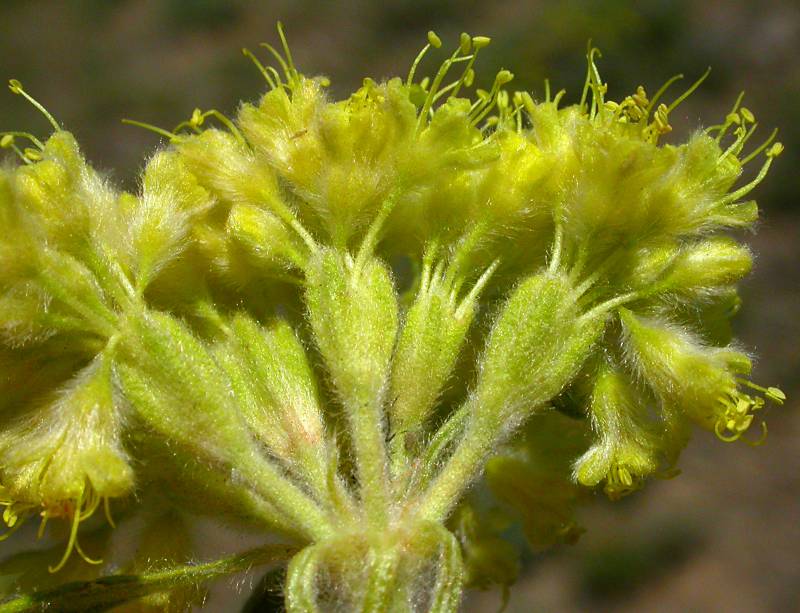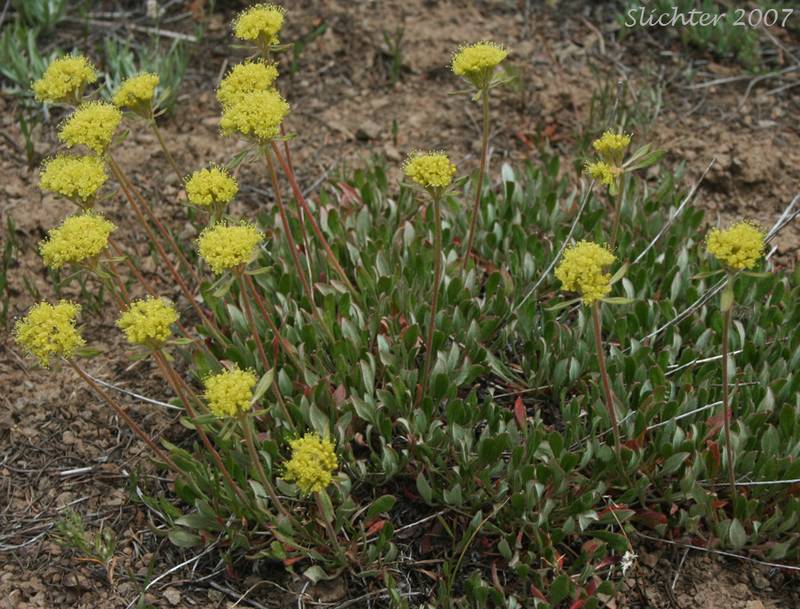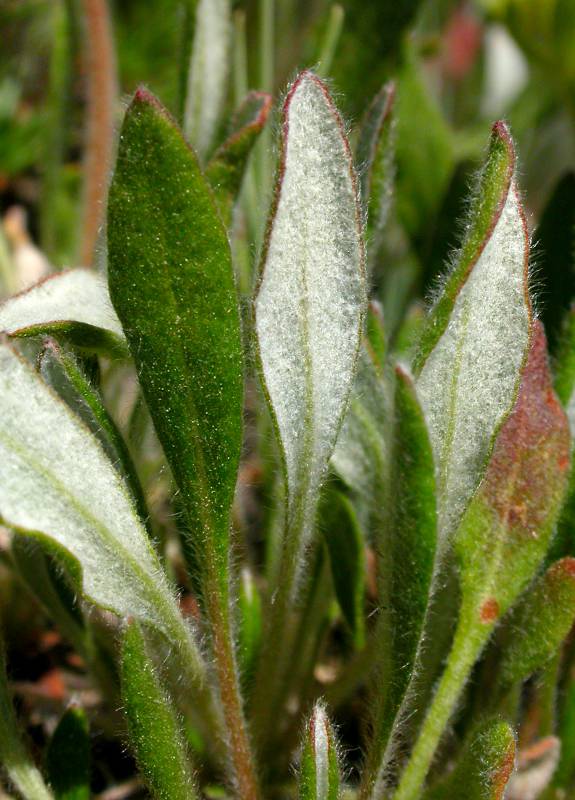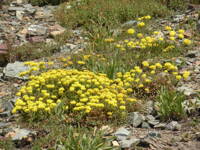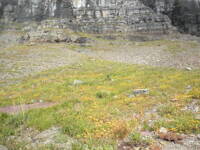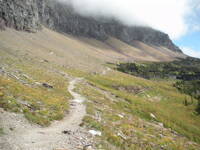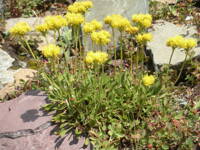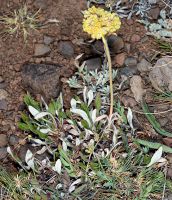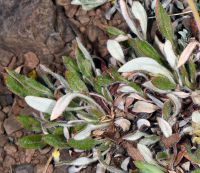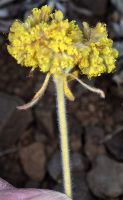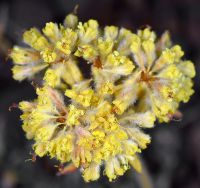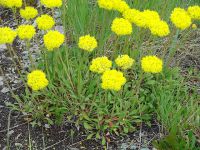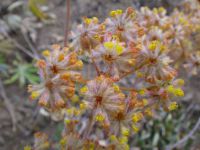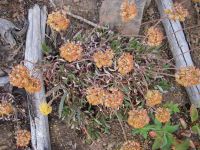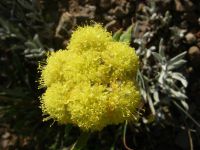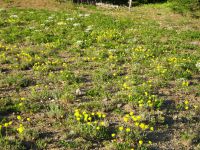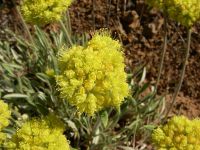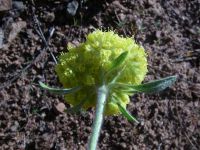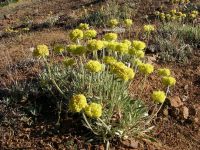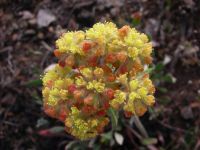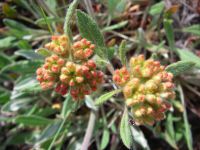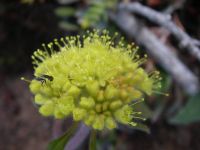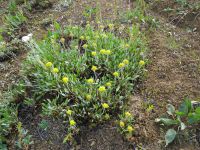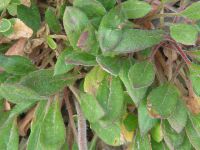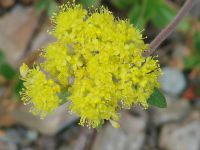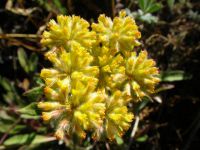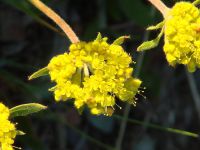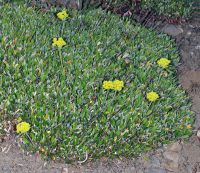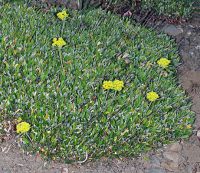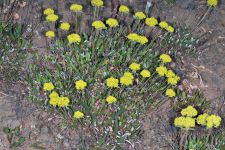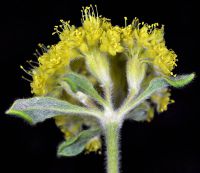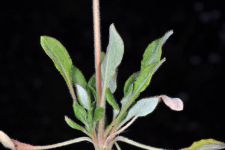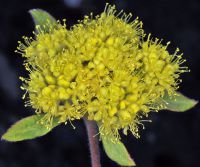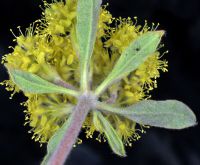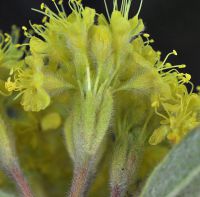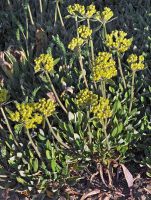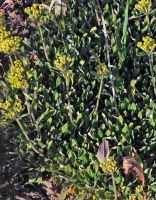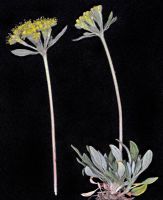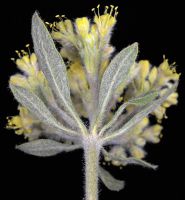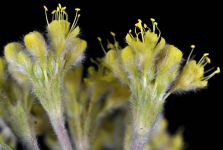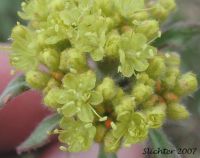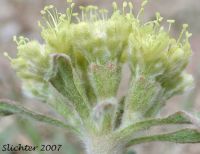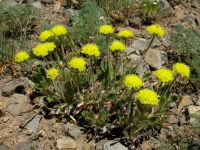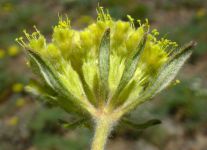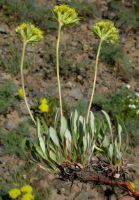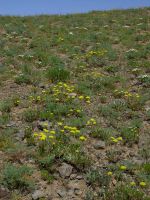Distribution: Occurring east of the Cascades crest in southeastern Washington; Alaska to northeastern Oregon, east to the northern Great Plains.
Habitat: Open knolls in grasslands to alpine ridges and scree.
Flowers: June-August
Origin: Native
Growth Duration: Perennial
Conservation Status: Not of concern
Pollination: Bumblebees, bees, flies, butterflies, beetles, wasps
Tufted perennial with several woody branches coming from a stout taproot and covered with dead leaves, and several simple stems to 2 dm. tall top with a compact, multi-rayed umbel and ball-shaped flower clusters.
Basal, closely crowded, usually more or less gray-woolly, especially below, linear to narrowly oblanceolate, 3-7 cm. long with a petiole about the same length.
Flowering stems leafless, 5-20 cm. long; inflorescence a simple umbel, rays up to 3 cm. long, subtended by 4-6 somewhat leafy bracts; involucre covered with soft hairs, cone-shaped, 4-7 mm. long with 4-5 shallow lobes; tepals 4-6 mm. long, usually pale to deep yellow but sometimes rose-tinged, covered with soft, silky hairs, and with a short, stipitate base.
Publication: Cat. Pl. Upper Louisiana. no. 34. 1813.
-
var. piperi – Piper's buckwheat, yellow buckwheat
 Occurring east of the Cascades crest in southeastern Washington; British Columbia to Oregon, east to Alberta, Montana, and Wyoming.
Occurring east of the Cascades crest in southeastern Washington; British Columbia to Oregon, east to Alberta, Montana, and Wyoming.
PNW Herbaria: Specimen records of Eriogonum flavum in the Consortium of Pacific Northwest Herbaria database
WA Flora Checklist: Eriogonum flavum checklist entry
OregonFlora: Eriogonum flavum information
E-Flora BC: Eriogonum flavum atlas page
CalPhotos: Eriogonum flavum photos

